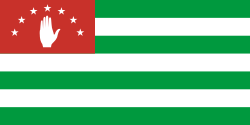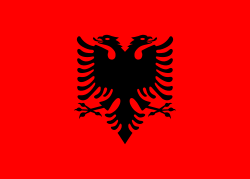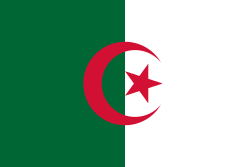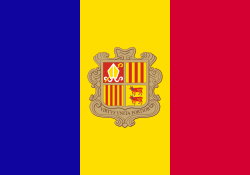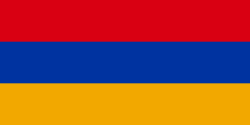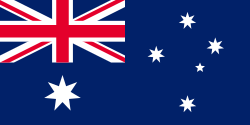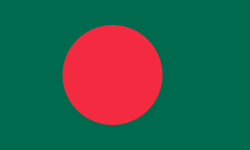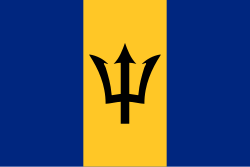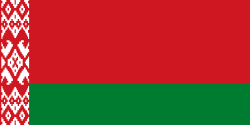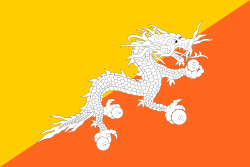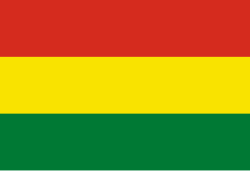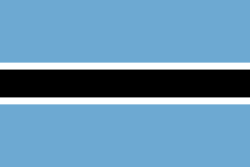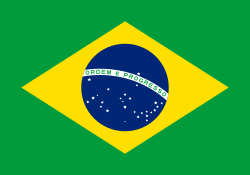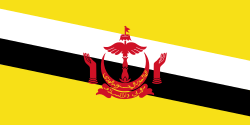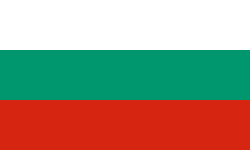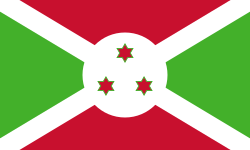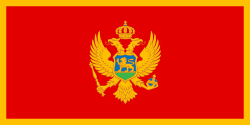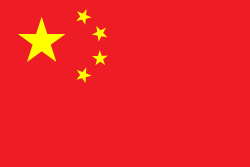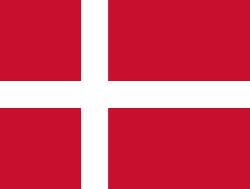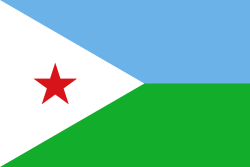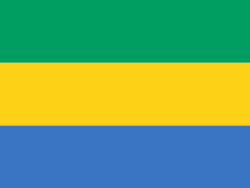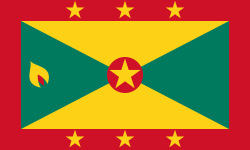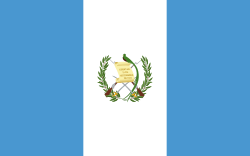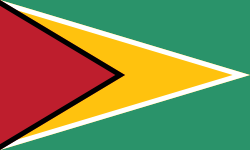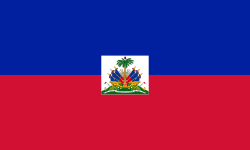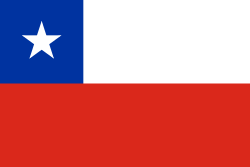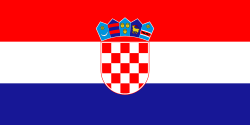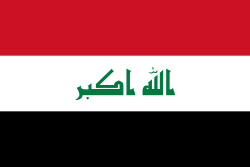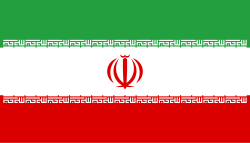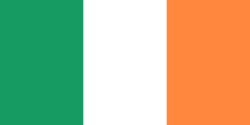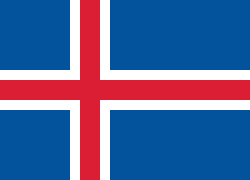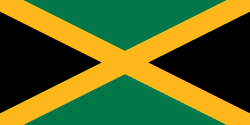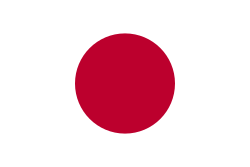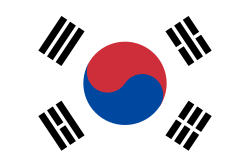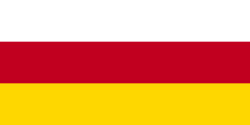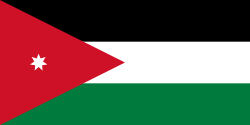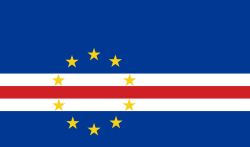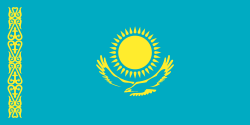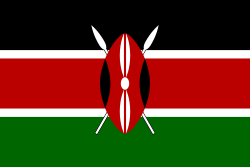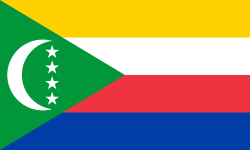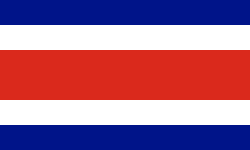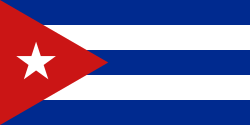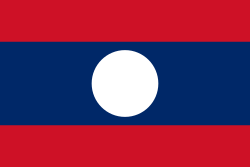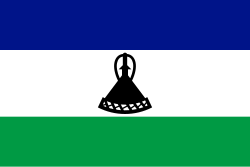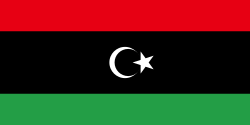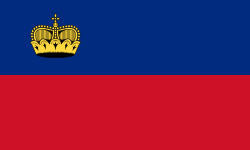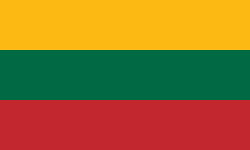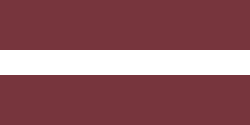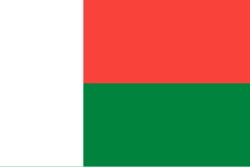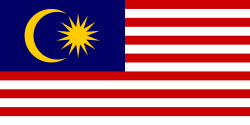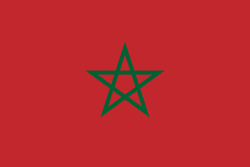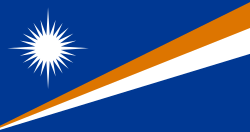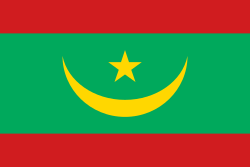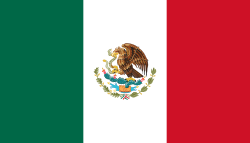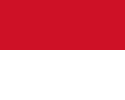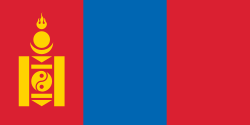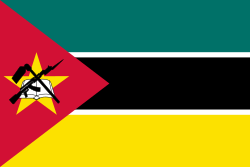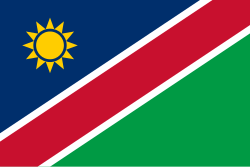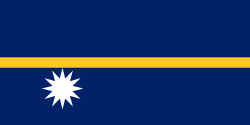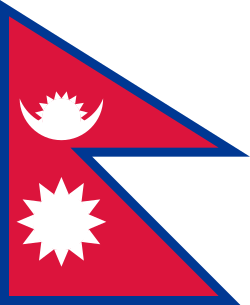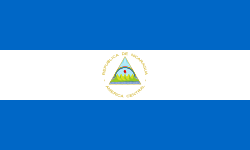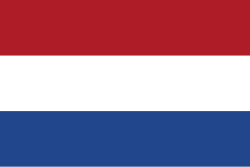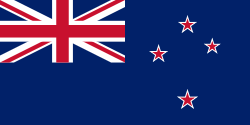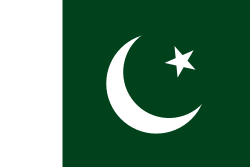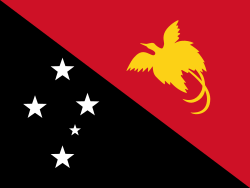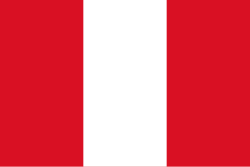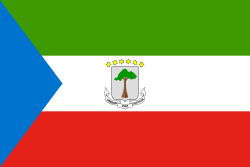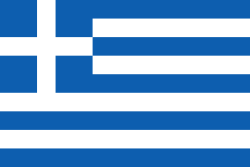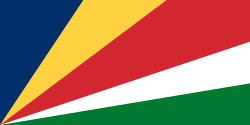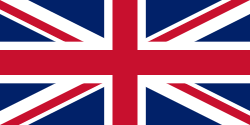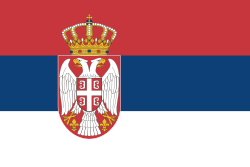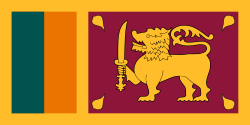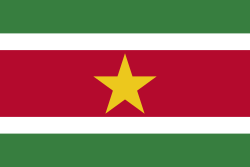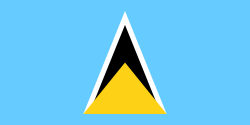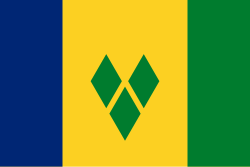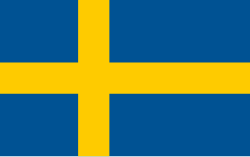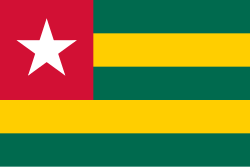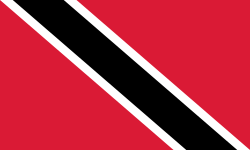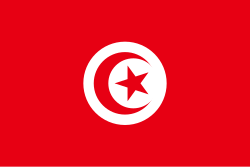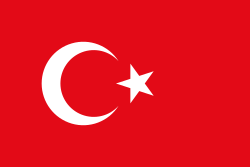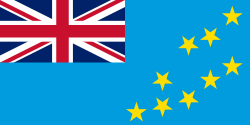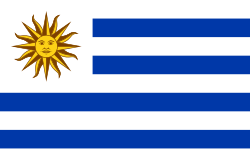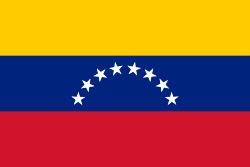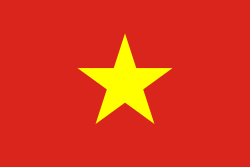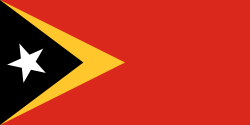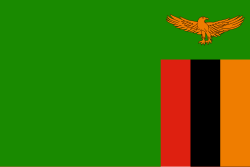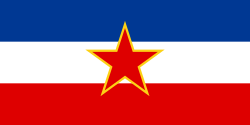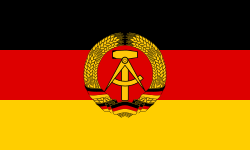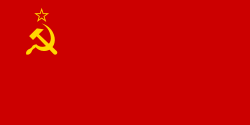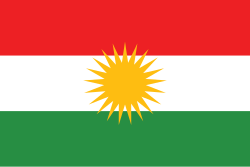Státní hymna
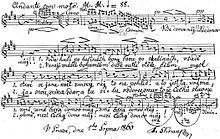
Státní nebo národní hymna je vlastenecká píseň nebo hudební skladba hraná a zpívaná při státních nebo národních oslavách a slavnostních příležitostech. Patří ke státním nebo národním symbolům a bývá určena patřičnými zákony či ústavou země. Národní hymna může být buď zároveň hymnou státní, nebo může, zejména v případě mnohonárodnostních států, představovat specifický etnický symbol (etnická hymna), aniž by byla hymnou oficiální. Vznik státní nebo národní hymny je mnohdy spojován s počátky státu nebo formováním národní identity nebo nezávislosti. Hymna je formou oficiálního vyjádření národní a státní myšlenky.[1]
Královská hymna je vlastenecká píseň, podobně jako národní hymna, avšak svým textem obzvláště oslavující konkrétního monarchu nebo panovnický rod.
Délka hymny
Státní hymny mají různé délky. Hudebně nejkratší státní hymnou je ugandská hymna (22 s, příležitostně se hraje dvakrát). Podle veršů je nejkratší japonská hymna (6 veršů, zároveň je nejstarší, pochází z 10. století). Hudebně nejdelší státní hymnou je uruguayská hymna (téměř 4,5 minuty, používá se zkrácená verze dlouhá 75 s). Textově nejdelší je řecká hymna (158 veršů).[2] Pro porovnání: česká hymna trvá 64 s,[2] verze pro ceremoniální účely trvá 45 s.[3] a má 9 veršů.
Státní hymny
Seznam hymen států, i částečně uznaných, uznaných de iure i de facto:
Státní hymny zaniklých států
| Stát | Název hymny (přepis do latinky) |
|---|---|
| Ազատ ու անկախ Արցախ (Azat u ankach Arcach) | |
| Kde domov můj a Nad Tatrou sa blýska | |
| Hej, Slované | |
| Auferstanden aus Ruinen | |
| Hymna Sovětského svazu (do roku 1944 Internacionála) |
Hymny závislých území
Seznam závislých území zde není kompletní, některá území užívají hymnu mateřského státu. Některé hymny jsou neoficiální.
| Závislé území | Název hymny (přepis do latinky) |
|---|---|
| Ålänningens sång | |
| Te Atua Mou E | |
| Nunarput utoqqarsuanngoravit | |
| Ko e Iki he Lagi | |
| Come ye Blessed | |
| La Borinqueña |
Národní hymny, hymny nižších územních celků
Uvedeny pouze hymny s článkem nebo seznam.
| Území, národ | Název hymny (přepis do latinky) |
|---|---|
| Republika srbská | Moja Republika |
| Zacatecas | Marcha de Zacatecas |
| viz | Seznam hymen německých spolkových zemí |
| Korutany | Kärntner Heimatlied |
| viz | Seznam hymen subjektů Ruské federace |
| Řecká Makedonie | Μακεδονία ξακουστή (Makedonia ksakustí) |
| Wales | Hen Wlad Fy Nhadau |
| viz | Seznam státních písní států USA |
| viz | Seznam hymen španělských autonomních společenství |
Národní/etnické hymny
| Etnikum | Název hymny (přepis do latinky) |
|---|---|
| ܪܘܼܡܪܵܡܵܐ (Roomrama) | |
| ئەی ڕەقیب (Ey Reqîb) | |
| Min izāmō | |
| Rjana Łužica | |
| Gejľem, gejľem | |
| Гимн Подкарпатських Русинов (Gimn Podkarpatskich Rusinov) | |
| Sámi soga lávlla | |
| Hej, Slované |
Odkazy
Reference
V tomto článku byl použit překlad textu z článku National anthem na anglické Wikipedii.
- ↑ Archivovaná kopie. hymna.cz [online]. [cit. 2009-02-25]. Dostupné v archivu pořízeném z originálu dne 2009-04-14.
- ↑ a b Česká hymna zase tak krátká není. Je delší než britská, od ostatních se moc neliší
- ↑ Česká hymna bude zřejmě delší a sebevědomější
Externí odkazy
 Obrázky, zvuky či videa k tématu státní hymna na Wikimedia Commons
Obrázky, zvuky či videa k tématu státní hymna na Wikimedia Commons  Slovníkové heslo hymna ve Wikislovníku
Slovníkové heslo hymna ve Wikislovníku Dílo Wikisource:National anthems ve Wikizdrojích (anglicky)
Dílo Wikisource:National anthems ve Wikizdrojích (anglicky)- Hymna.cz Archivováno 14. 4. 2009 na Wayback Machine. (česky)
- Hymna.ic.cz (česky)
- National Anthems of the World (anglicky)
- Hymny ve formátu MIDI (anglicky)
- National Anthems Info (anglicky)
- NATIONAL ANTHEMS (anglicky)
- National Anthems (anglicky)
- National Anthems: Audio, Lyrics, & Sheet Music (anglicky)
- Hymny ve formátu MP3 a MIDI (anglicky)
Média použitá na této stránce
Flag of Abkhazia
Vlajka Angoly
Flag of Australia, when congruence with this colour chart is required (i.e. when a "less bright" version is needed).
See Flag of Australia.svg for main file information.This is the national flag of Belgium, according to the Official Guide to Belgian Protocol. It has a 13:15 aspect ratio, though it is rarely seen in this ratio.
Its colours are defined as Pantone black, Pantone yellow 115, and Pantone red 032; also given as CMYK 0,0,0,100; 0,8.5,79,0; and 0,94,87,0.| Flag of Bolivia* | |
|---|---|
| country | Template:I18n/Republic of Bolivia |
| used by | Bolivia |
| from | 1851 |
| until | Present |
| created by | Government of Bolivia |
| format | 15:22 |
| shape | rectangular |
| colours | červená, žlutá, zelená
flag has 3 horizontal stripes |
| other characteristics | A horizontal tricolor of red, yellow and green. |
Flag of Burkina Faso
Vlajka České republiky. Podoba státní vlajky České republiky je definována zákonem České národní rady č. 3/1993 Sb., o státních symbolech České republiky, přijatým 17. prosince 1992 a který nabyl účinnosti 1. ledna 1993, kdy rozdělením České a Slovenské Federativní republiky vznikla samostatná Česká republika. Vlajka je popsána v § 4 takto: „Státní vlajka České republiky se skládá z horního pruhu bílého a dolního pruhu červeného, mezi něž je vsunut žerďový modrý klín do poloviny délky vlajky. Poměr šířky k její délce je 2 : 3.“
The flag of the Dominican Republic has a centered white cross that extends to the edges. This emblem is similar to the flag design and shows a bible, a cross of gold and 6 Dominican flags. There are branches of olive and palm around the shield and above on the ribbon is the motto "Dios,Patria!, Libertad" ("God, Country, Freedom") and to amiable freedom. The blue is said to stand for liberty, red for the fire and blood of the independence struggle and the white cross symbolized that God has not forgotten his people. "Republica Dominicana". The Dominican flag was designed by Juan Pablo Duarte, father of the national Independence of Dominican Republic. The first dominican flag was sewn by a young lady named Concepción Bona, who lived across the street of El Baluarte, monument where the patriots gathered to fight for the independence, the night of February 27th, 1844. Concepción Bona was helped by her first cousin María de Jesús Pina.
The flag of the Dominican Republic has a centered white cross that extends to the edges. This emblem is similar to the flag design and shows a bible, a cross of gold and 6 Dominican flags. There are branches of olive and palm around the shield and above on the ribbon is the motto "Dios,Patria!, Libertad" ("God, Country, Freedom") and to amiable freedom. The blue is said to stand for liberty, red for the fire and blood of the independence struggle and the white cross symbolized that God has not forgotten his people. "Republica Dominicana". The Dominican flag was designed by Juan Pablo Duarte, father of the national Independence of Dominican Republic. The first dominican flag was sewn by a young lady named Concepción Bona, who lived across the street of El Baluarte, monument where the patriots gathered to fight for the independence, the night of February 27th, 1844. Concepción Bona was helped by her first cousin María de Jesús Pina.
Vlajka Etiopie
Finská vlajka
Georgian flag in Pantone MS.
The national and official state flag of Haiti; arms obtained from File:Coat of arms of Haiti.svg. The civil flag can be found at here.
Note: The color selected is «turquoise blue» (the color mentioned in the decree), as defined by Pantone.
Při zobrazení tohoto souboru lze snadno přidat orámování
Při zobrazení tohoto souboru lze snadno přidat orámování
bendera Indonesia
Flag of Iran. The tricolor flag was introduced in 1906, but after the Islamic Revolution of 1979 the Arabic words 'Allahu akbar' ('God is great'), written in the Kufic script of the Qur'an and repeated 22 times, were added to the red and green strips where they border the white central strip and in the middle is the emblem of Iran (which is a stylized Persian alphabet of the Arabic word Allah ("God")).
The official ISIRI standard (translation at FotW) gives two slightly different methods of construction for the flag: a compass-and-straightedge construction used for File:Flag of Iran (official).svg, and a "simplified" construction sheet with rational numbers used for this file.
Zelený pruh má znázorňovat většinové katolické obyvatelsto Irska, oranžový pruh reprezentuje protestantskou menšinu a bílý pruh uprostřed znázorňuje mír a harmonii mezi nimi.
The Flag of Iceland.
- Horizontal aspect ratio: 7:1:2:1:14;
- Vertical aspect ratio: 7:1:2:1:7.
Flag of Jamaica. “The sunshine, the land is green, and the people are strong and bold” is the symbolism of the colours of the flag. GOLD represents the natural wealth and beauty of sunlight; GREEN represents hope and agricultural resources; BLACK represents the strength and creativity of the people. The original symbolism, however, was "Hardships there are, but the land is green, and the sun shineth", where BLACK represented the hardships being faced.
Used color: National flag | South African Government and Pantone Color Picker
| zelená | rendered as RGB 0 119 73 | Pantone 3415 C |
| žlutá | rendered as RGB 255 184 28 | Pantone 1235 C |
| červená | rendered as RGB 224 60 49 | Pantone 179 C |
| modrá | rendered as RGB 0 20 137 | Pantone Reflex Blue C |
| bílá | rendered as RGB 255 255 255 | |
| černá | rendered as RGB 0 0 0 |
Flag of Canada introduced in 1965, using Pantone colors. This design replaced the Canadian Red Ensign design.
Flag of Laos
Flag of Liechtenstein
Flag of Maldives. The colours used are Pantone 186 C for red and Pantone 348 C for green.
Flag of Mauritania, adopted in 2017. The National Assembly added red stripes to the top and bottom edges to represent “the blood shed by the martyrs of independence”.
Flag of Namibia
The national flag of Nauru. Pantone 280c (Blue) and Pantone 123c (Yellow). On Pantone's official website these colours have the hexadecimal codes of #012169 and #FFC72C.
Flag of the Ivory Coast, written by Jon Harald Søby, modified by Zscout370. The colors match to what is reported at http://fotw.vexillum.com/flags/ci.html.
Flag of the Pridnestrovian Moldavian Republic (Pridnestrovie, Transdniestria, Transnistria). The flag's reverse omits the hammer and sickle
Flag of Portugal, created by Columbano Bordalo Pinheiro (1857-1929), officially adopted by Portuguese government in June 30th 1911 (in use since about November 1910).
Flag of Senegal
The proportions of this flag are 3:2; however, there is no official definition for the correct proportions and also 5:3 is widely used.
Flag of São Tomé and Príncipe
Při zobrazení tohoto souboru lze snadno přidat orámování
The national flag of Kingdom of Thailand; there are total of 3 colours:
- Red represents the blood spilt to protect Thailand’s independence and often more simply described as representing the nation.
- White represents the religion of Buddhism, the predominant religion of the nation
- Blue represents the monarchy of the nation, which is recognised as the centre of Thai hearts.
Flag of Togo. Aspect ratio modified for projects that require an aspect ratio of 3:2.
The Flag of Vatican City State, as per the 2023 w:en:Fundamental Law of Vatican City State, reproducing Annex A which contains the official depiction of this version. See 2023 Fundamental Law of Vatican City State, art. 23, n. 1.
This 2023 flag is very similar to the flag used in the 1929 Fundamental Law of Vatican City State, see here, p. 35. Thus, it is in the public domain.
Flag of the Socialist Federal Republic of Yugoslavia (1946-1992).
The design (blazon) is defined in Article 4 of the Constitution for the Republic of Yugoslavia (1946). [1]
Všeslovanská vlajka shválena na všeslovanské konvenci v Praze v roku 1848
Flag of the Liflandia Governorate
Flag of Donetsk People's Republic
Flag of Zakarpattia Oblast, adopted on 27 February 2009.
Flag of Lugansk People's Republic
The flag of the Pitcairn Islands, arms courtesy an e-mail from the author of xrmap and the Blue Ensign from Image:Government Ensign of the United Kingdom.svg
The Flag of Vatican City State, as per the 2023 w:en:Fundamental Law of Vatican City State, reproducing Annex A which contains the official depiction of this version. See 2023 Fundamental Law of Vatican City State, art. 23, n. 1.
This 2023 flag is very similar to the flag used in the 1929 Fundamental Law of Vatican City State, see here, p. 35. Thus, it is in the public domain.
Sámská vlajka
